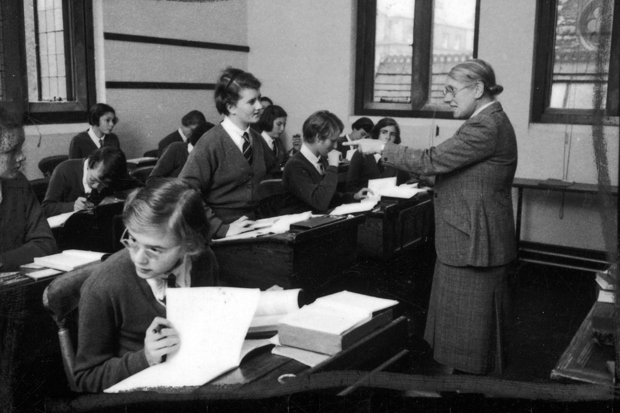If you were to take a large dragnet and scoop up all the shoppers in the haberdashery department of Peter Jones in Sloane Square, your catch would be a group of women of the kind given voice in this marvellous little book. Readers old enough to remember Joyce Grenfell will know the type.
Ysenda Maxtone Graham characterises them as people who sleep with the window open in all weather; who know how to cast on and off in knitting; are thrilled by the arrival of a parcel, even if it’s just some Hoover bags bought on Amazon. They haven’t done up their kitchens since the early 1970s and they always feel homesick on Sunday evenings, even though they’re at home. The mainstays of Riding for the Disabled and the church flower rota, they have names like Bubble Carew Pole and Gillian Charlton-Meyrick. The word gumption doesn’t appear in these pages, oddly enough. But that’s what comes to mind: these women have gumption.
It may seem almost absurdly niche, but this is a book which deserves a wider audience than its title suggests. Like Dear Lupin and its sequels, it finds comedy and a touching sort of home-grown courage in the rather narrow social group it describes. Ysenda Maxtone Graham has an eye for the drollery of detail and an abundance of wit, which helps. She is good at keeping a straight face. Describing the horrors of school food, she writes: ‘Putting pilchards into one’s pocket was a risky business.’ When interviewing one cluster of women whose school had been especially lax, she asks if, between apricot crumble and hockey, they’d had any afternoon lessons, or learned anything much: ‘They weren’t sure but thought probably not.’
Apart from Cheltenham Ladies’ College (always a bastion of intellect), many of the schools were pretty hopeless.








Comments
Join the debate for just £1 a month
Be part of the conversation with other Spectator readers by getting your first three months for £3.
UNLOCK ACCESS Just £1 a monthAlready a subscriber? Log in